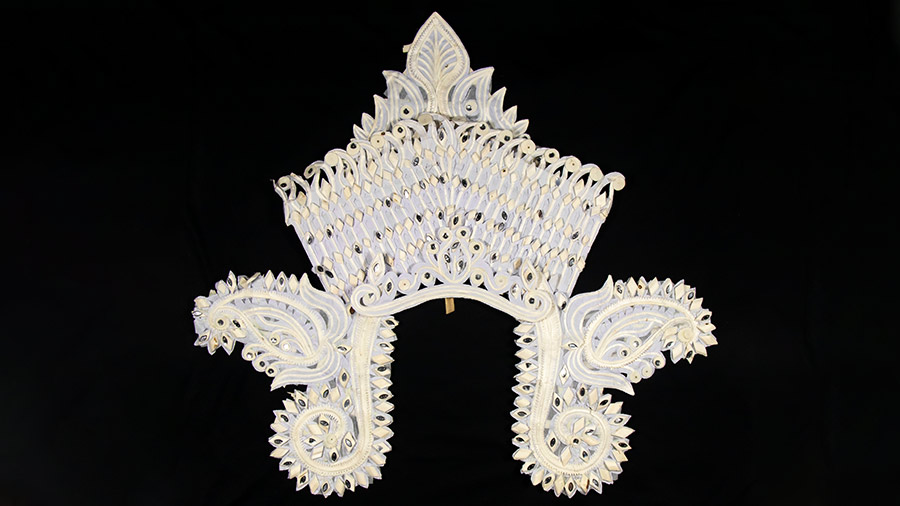The Centre’s ban on thermocol (polystyrene) just three months ahead of the Durga Puja festival has put West Bengal artisans in a fix as they use that product to decorate pandals and embellish the ornaments of the idols.
The artisans feel the government could have launched an awareness campaign among them about thermocol's bad effect on the environment and given time to them to find out an alternative product.
The Government of India from July 1 banned the manufacture, import, stocking, distribution, sale and use of identified single-use plastic items such as plates, cups, and straws, besides polystyrene.
Thermocol is a synthetic polymer often used in protective packaging, thermal insulation and decorating various items. However, it is not biodegradable and thus not environment-friendly.
Internationally known artist Sanatan Dinda welcomed the move but said artisans should have been given some time for the transformation. “Most people go for thermocol based decorations. They should have been trained first and then the ban should have been imposed.”
“I used thermocol in the past but shunned it a long time ago. In this year’s puja, I am using iron, paper, different kinds of clay and fibreglass for my work,” he added.
Artist Pradip Das also supported the government's decision. “The government also must ensure that thermocol is not manufactured. People cannot use it if it is not available in the market,” Das said, adding that he is using pieces of cloth to give shape to the theme for another puja organiser in the city.
West Bengal Pollution Control Board chairman Kalyan Rudra said everyone had to comply with the rules laid down by the Government of India.
Ranjit Sarkar, an artisan who creates various items with thermocol and also prepares embellishments for ornaments for idols, said nothing much could be done this year as most of the items had already been prepared. “We will have to think of other materials instead of thermocol now. The government should have thought about it a long time ago. Many people will be affected due to the ban and shifting to other materials will take time,” he added.
“This is a great move, yet a campaign should have been organised before the ban,” said artist Bhabotosh Sutar.
He noted that besides environmental pollution, scattered pieces of thermocol also cause visual pollution, especially after the pujas. “A substitute for thermocol is required now. It can be shola, which is a natural product. It is harvested from the shola plant that grows in marshy land.”
Shola (Aeschynomene aspera) is available in various places in West Bengal and many people are engaged in creating artworks made of it.
However, shola is much costlier compared to thermocol and the production cost will go up if it is used as an alternative material, the artist said.
